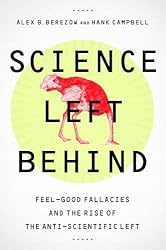 When Freedom of Information Act requests were being over-used by critics of climate science, the environmental community objected. What was little discussed was that they had been doing the same thing for decades, alleging, for example, that MIT Professor of Meterology Richard Lindzen was a shill for Big Oil because in the 1990s he had been paid $5,000 to give insight into climate issues.
When Freedom of Information Act requests were being over-used by critics of climate science, the environmental community objected. What was little discussed was that they had been doing the same thing for decades, alleging, for example, that MIT Professor of Meterology Richard Lindzen was a shill for Big Oil because in the 1990s he had been paid $5,000 to give insight into climate issues.
And now environmentalists are at it again. U.S. Right To Know, a partisan activist group run by people well-connected in political circles, has been using FOIAs as a hammer to bludgeon scientists who support science their donors are against - food - and the group is now claiming that anyone who gets money from a corporation must be "for sale."
If you think climate scientists can't be bought off by fossil fuel companies because they are too ethical but biologists are being bought off by much-smaller Monsanto, you have all the logic you need to work at or financially support groups like Natural Resources Defense Council and USRTK.
Most scientists don't want drama, of course, they just want to do their work and be trusted guides for the public on complex issues, just as American Council on Science and Health has been for 37 years. But one researcher is now fighting back.
University of Florida molecular biologist Professor Kevin Folta has been smeared by environmental groups and their hordes because Monsanto donated $25,000 to an education fund which paid for his travel expenses to give talks. Politically sympathetic bloggers then piled on, doing no fact-checking of their own and just parroting what they read on Twitter and in articles carefully framed to impugn biotech science. Writing at Science 2.0, Folta takes the Public Library of Science (PLOS) to task for engaging in nothing close to reading comprehension, much less critical thinking, in attacking him and using their lack of understanding about emails as evidence.
PLOS is frequently criticized for publishing far too many articles for a fee and calling them peer-reviewed even if an editor only checks off four boxes, so it isn't a surprise their blog posts aren't fact checked, but it is a sad state of affairs when it is open season on a respected scientist because bloggers in a guest post happen to be on the same side politically as environmental marketers - and that side is firmly against science PLOS claims to represent.
Paul D. Thacker, an ethicist at Harvard, is known in for revealing that the National Oceanic & Atmospheric Administration (NOAA) was letting a commerce official with no training in science determine who could talk about the science of climate change. Yet he ironically invokes science and ethics in his blog post, without having much recognition of what either is. Charles Seife is a professor of journalism at New York University who frequently uses the Freedom of Information Act to harass his political opposition and unsurprisingly endorses it in their PLOS guest piece.
They sound legitimate, but that is where their credibility ends. What is odd is that two academics get so much completely wrong in so few words.
They can't even read how an email thread works - and don't reveal where they obtained the emails related to Folta - but nonetheless engage in the sort of elitist populism that can only mean they were hand-picked by the political operatives running USRTK to do exactly the job they did.
It's sad to think one of them is a professor of journalism, since Folta dismisses their journalism so easily:
To address Thacker and Seife s claims of collusion, it was not a case where the scientist advised Monsanto on ways to defeat a political campaign in California. First of all, it was Colorado.
Nice job, guys. Even the softball facts seem to be a problem.
And the errors compound from there.
Wrong author of the email, misrepresented content, wrong date, wrong state, and portraying me as a stooge of the company, when I was criticizing the company. Did they get anything right?
No, but that may be why they were chosen, and why a company that provides a stamp of legitimacy if the credit card clears published it.
From PLOS Blogs, the story began began to spread as truth, with other bloggers and journalists taking it as fact because it had the stamp of academic legitimacy - all while never wondering about the motivations and financial incentives of the source, USRTK.
There has been rampant criticism that as academia became wildly unbalanced culturally in the last few decades, its ability be neutral arbiters for the broad public has declined and that may be the case here. But that is in the humanities. On the evidence-based side of universities, science academia has firmly criticized this blatant hatchet job in social media and in blog posts of their own.



